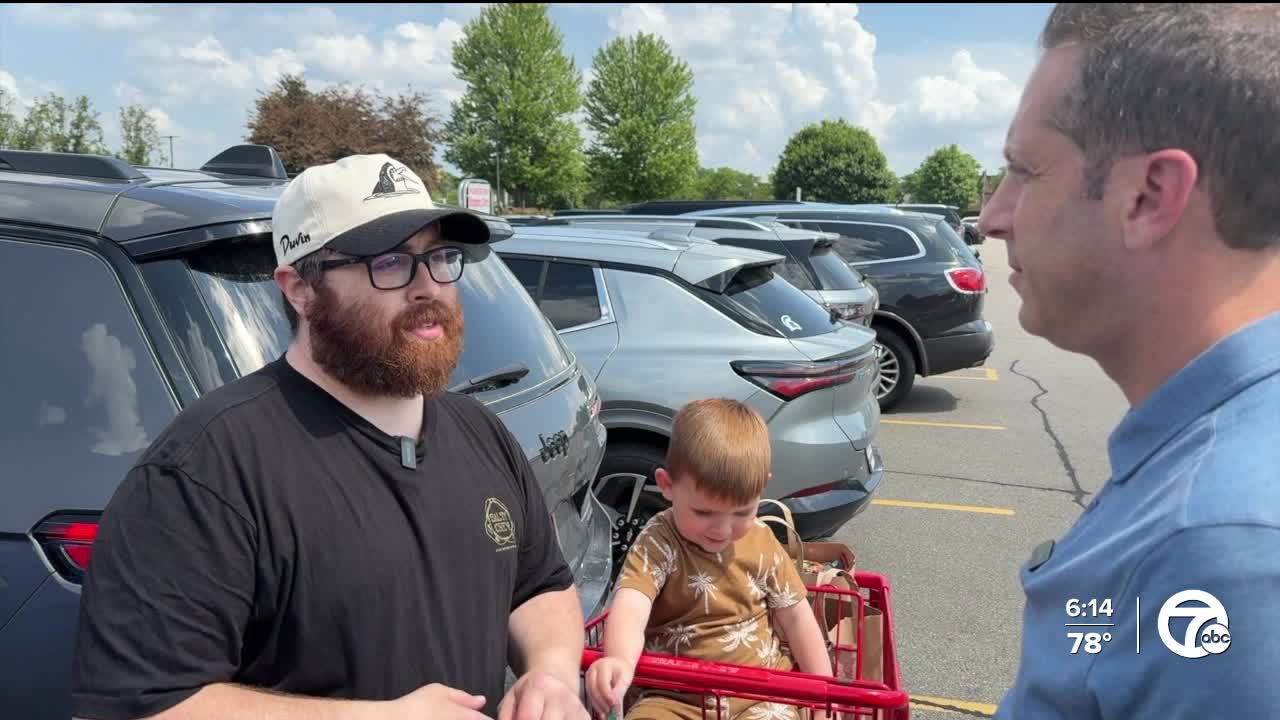(WXYZ) — The hot topic of paying for private schooling with public dollars is again part of a raging debate in Michigan.
While Michigan currently doesn’t allow for public dollars to be put towards private schooling, new federal rules could one day change that. I asked parents how they felt, and also talked with lawmakers.
Watch Simon's full piece in the video player below:
"Parents' choice is really important, and if parents want to put their kids in private school and can’t afford it, I think it’s good for them to get some help," Bob Harvey, a public school parent in Bloomfield Township, said.
On the flip side, parent Nikita Evans has a different view despite sending her son to private school.
She says Warren De La Salle Collegiate provided him with an exceptional education, but she opposes federal help to cover the expenses of private school.
She said it would hurt public districts by causing them to lose state funding if more students leave, and she also questions how the program would actually work.
“You can say it’s going to be access to all, but is that really true? Do we have to have a certain GPA? What are the benchmarks? What metrics do I have to meet?" Evans asked.

I reached out to supporters and opponents of the plan. Advocates say it promotes more choices for parents.
According to the new law, in the federal scholarship tax credit, which is the nation's first, families must be 300% or more below the area median gross income and it can cover tuition, fees, tutoring, special needs services, books, supplies, uniforms, room & board, transportation, computer technology and more.

Program donors and scholarship-granting organizations also have specific rules. An estimated 2 million U.S. students could take part in the plan.
“Voters in Michigan for the last 30-plus years have multiple times rejected bills or proposed constitutional amendments to bring a school voucher program to fund private school tuition with public dollars," Michigan State University Professor Joshua Cowen said.
Cowen is a nationally-recognized expert on education, and says states will have the option to opt out, a decision made by governors and state legislatures. But, he points to another issue in play.
“The most important thing to know about public schools now is we’re not funding them enough," Cowen said.

He adds that voucher-type aid could end up mostly going to students already in private schools, where tuition can exceed $10,000 a year.
I also talked with Paul Stankewitz with the Michigan Catholic Conference, an organization tracking policy that advocates for private Catholic schools.
“To empower families and help them with their educational expenses is a very good thing, and that helps further the education cause of the state of Michigan," Stankewitz said.

Democrat State Sen. Darrin Camilleri, a former public school teacher, spoke about the plan.
“They’re trying to destabilize our public school system," Camilleri said. "They’re not ones that any of us should be supporting or wrapping our arms around.”
Currently, in more than 30 states, students now have more options through educational choice programs, and in Michigan, parents can already pay more for their kids to change districts.

In Harvey's case, as a husband to a public school teacher, he's passing on private school even though he doesn't oppose others using public dollars to do so.
“Personally, my kids go to public school. That’s what my wife and I prefer," Harvey said.
Much debate about this issue continues. We’ve learned that if changes were to take place, it wouldn’t happen until 2027.




